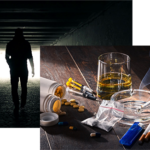Rehabilitation centers play a vital role in addressing mental health issues and substance abuse. However, these centers face significant challenges in providing effective mental health care. In this blog post, we will explore the obstacles that the Best Rehabilitation Center in South Kolkata and other similar facilities encounter.
Understanding the Scope of Rehabilitation Centers
Rehabilitation centers are essential for individuals battling addiction and mental health disorders. They offer a structured environment for recovery and provide various therapeutic interventions. Despite their importance, rehabilitation centers often struggle to meet the diverse needs of their patients.
The Importance of Holistic Care
Holistic care is crucial in rehabilitation centers, as it addresses the physical, emotional, and psychological aspects of recovery. However, implementing a holistic approach can be challenging due to limited resources and varying patient needs. Rehabilitation centers must balance medical treatment with holistic practices to ensure comprehensive care.
Limited Resources and Funding
One of the most significant challenges faced by rehabilitation centers is limited resources and funding. Many centers operate with tight budgets, making it difficult to hire qualified staff, purchase necessary equipment, and maintain facilities. This financial strain can impact the quality of care provided and limit the availability of services.
Shortage of Qualified Professionals
A shortage of qualified mental health professionals is another major hurdle. Rehabilitation centers require a team of experts, including psychiatrists, psychologists, counselors, and social workers, to provide effective care. However, attracting and retaining skilled professionals can be difficult, especially in underfunded and understaffed facilities.
High Staff Turnover Rates
High staff turnover rates further complicate the situation. Frequent staff changes can disrupt the continuity of care and negatively affect patient outcomes. The Best Rehabilitation Center must implement strategies to improve staff retention, such as offering competitive salaries, professional development opportunities, and supportive work environments.
Stigma Surrounding Mental Health
The stigma associated with mental health and addiction remains a significant barrier to effective care. Patients may feel ashamed or reluctant to seek help, while society often views them with prejudice. Rehabilitation centers must work to reduce stigma through education and advocacy, fostering a more accepting and supportive environment for those in need.
Integrating Physical and Mental Health Care
The Best Rehabilitation Center in South Kolkata must address both physical and mental health to provide comprehensive care. This integration can be challenging, as it requires collaboration between various healthcare providers and the implementation of coordinated treatment plans. Ensuring seamless communication and cooperation among professionals is essential for effective patient care.
Ensuring Continuity of Care
The continuity of care is crucial for long-term recovery. However, many rehabilitation centers struggle to provide consistent support once patients leave the facility. Developing robust aftercare programs and maintaining connections with community resources can help bridge this gap and support ongoing recovery efforts.
Adapting to Individual Needs
Each patient has unique needs and requires personalized care. Rehabilitation centers must tailor their treatment plans to address these individual differences, which can be time-consuming and resource-intensive. Implementing flexible and adaptable care plans is essential for meeting the diverse needs of patients.
Addressing Co-Occurring Disorders
Many individuals seeking help at rehabilitation centers have co-occurring mental health and substance use disorders. Treating these dual diagnoses requires specialized knowledge and a comprehensive approach. Rehabilitation centers must develop integrated treatment plans that address both issues simultaneously, ensuring better outcomes for patients.
Access to Evidence-Based Treatments
Access to evidence-based treatments is vital for effective mental health care. However, rehabilitation centers may struggle to stay current with the latest research and best practices. Investing in ongoing staff training and education can help ensure that patients receive the most effective treatments available.
Incorporating Family and Community Support
Support from the community and family is essential to the healing process. The Drug Rehabilitation Center in Kolkata involves families in treatment plans and facilitates connections with community resources. Encouraging family participation and fostering a supportive network can significantly enhance patient outcomes.
Measuring and Evaluating Outcomes
Assessing the effectiveness of treatment is essential for continuous improvement. The Drug Rehabilitation Center implements robust evaluation methods to measure patient progress and identify areas for improvement. This data-driven approach can help refine treatment plans and improve the overall quality of care.



